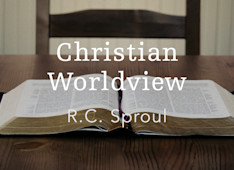Science And Theology
We have been considering the doctrine of the sovereign providence of God, His active control and direction of all that happens in creation. Generally speaking, this control is invisible to us. That is, we do not see the Lord directly su-perintending the universe; rather, we see the effects of His control, the visible results of what He has planned and purposed as we look on the events of history, the movement of planets and stars, and other phenomena. In turn, that raises the issue of how we explain visible phenomena in the natural sciences as well as how various scientif-ic theories are related to the reality of divine providence. So that we will better understand providence and its relation to science, we will now spend some time considering this issue with the help of Dr. R.C. Sproul’s teaching series Creation or Chaos.
For at least the past one hundred years, the natural sciences have held a privileged place in Western society. It is not hard to understand why; after all, advancements in medicine, physics, chemistry, and oth-er areas have all improved our overall quality of life in many ways. Air conditioning makes us more comfortable during hot and humid weather. We can cross oceans in a matter of hours because of air trav-el. Antibiotics fight infections. Examples could be multiplied, but the point is that science has helped most Westerners enjoy a standard of living far higher than that enjoyed by kings just a few centuries ago.
The discipline of theology—which is actually a science of its own—has not enjoyed a similar level of acclaim in recent years. In fact, many people in our society believe that science and theology, faith and reason are opposed to one another. Yet these same people do not often real-ize that this is a rather new development in history. Modern science was birthed in Christian Europe, and many of the greatest scientific discoveries in history were made by Christians.
Given the parameters of the Christian worldview, however, this should not be surprising. As Dr. R.C. Sproul has often noted, the first scientific labors were carried out by Adam in the garden of Eden when he named the animals (Gen. 2:19). This was a work of taxonomy where-by the first man identified and distinguished living creatures. Fur-thermore, God’s promise to preserve the regularity of the natural order provides a basis for science (8:22). Because the Lord pledges that the rhythm of nature will continue, we have a basis for making test-able predictions and hypotheses in repeatable experiments.
Coram Deo
A universe governed by chance gives us no foundation for science. Without God’s promise to preserve the natural order, we have no reason to be certain that we can make predictions about the past or future. And if we cannot do that, we cannot trust that the results of our experiments can be repeated, making it impossible to test the experiments of others, which is vital to scientific advancement. God’s revelation alone gives us a basis for science.


